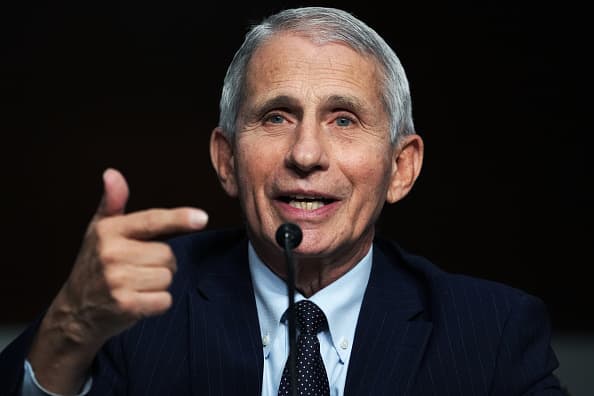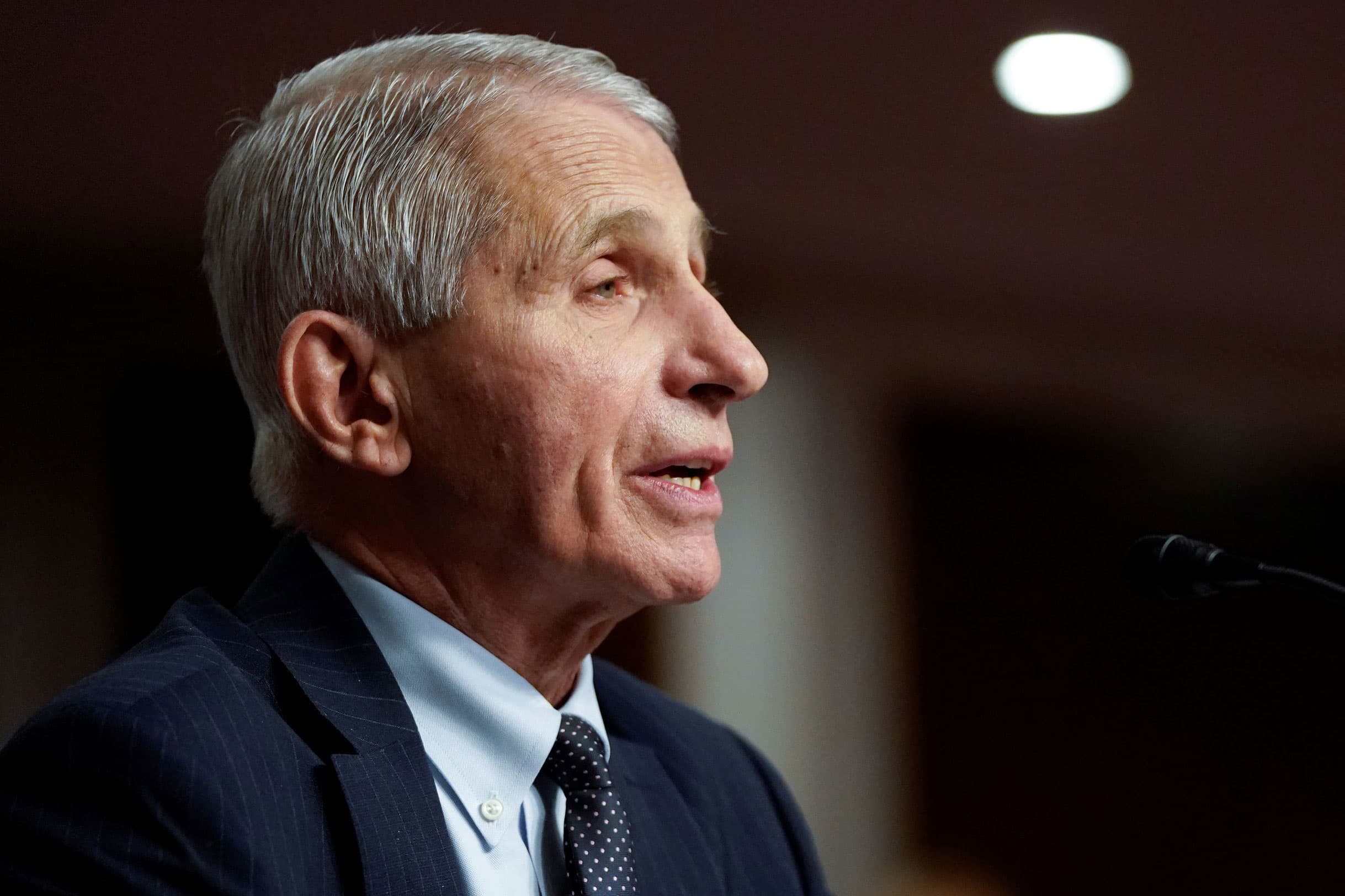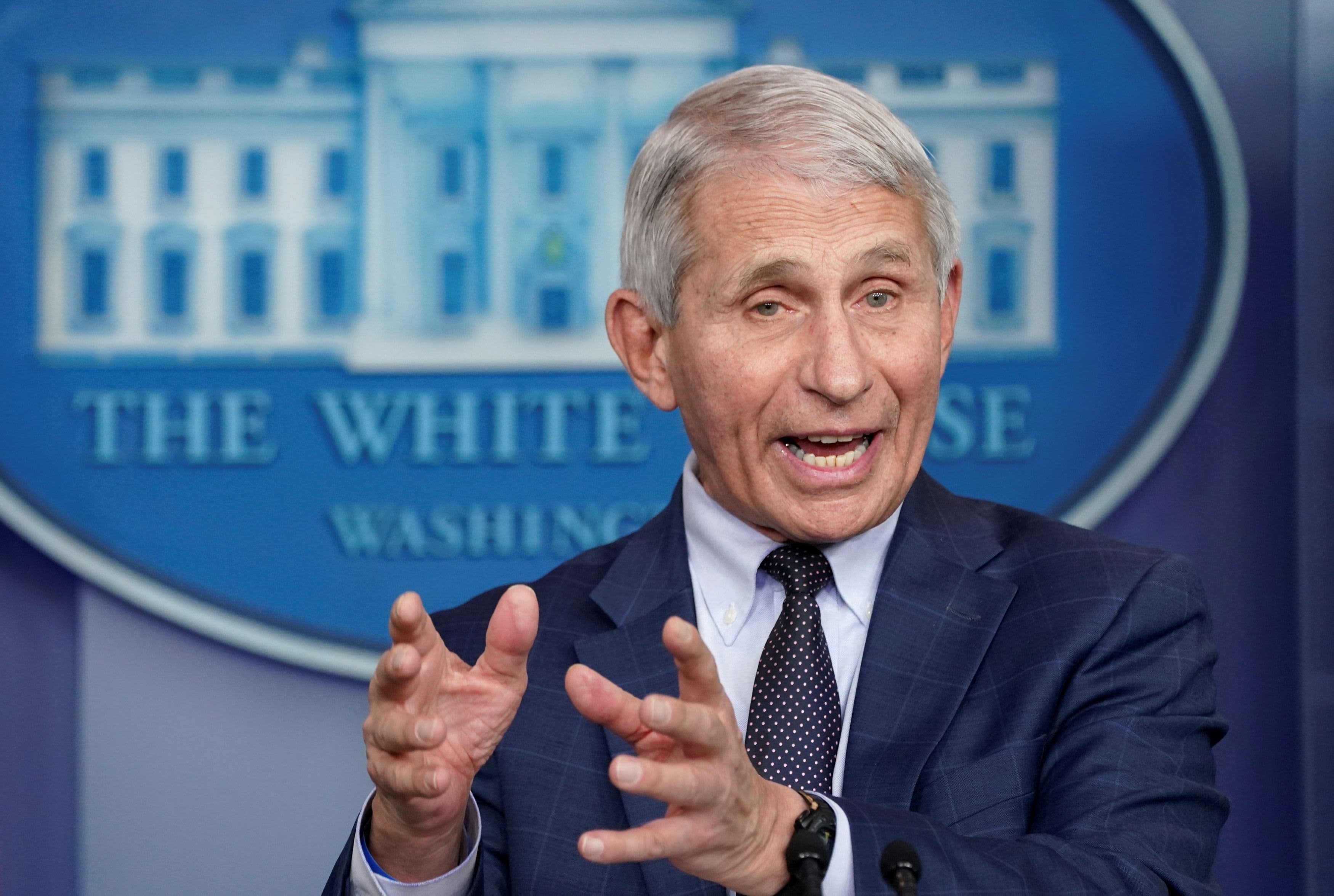The nation's leading infectious disease expert will soon step down from his role after more than five decades of government service. News4 recently sat down with Dr. Anthony Fauci at his home to talk about his career, COVID-19 and how he hopes he'll be remembered.
Fauci's Career at NIH
Did you ever imagine the course that your career would take?
"My plans were pretty simple. I came on to the [National Institutes of Health] campus. I was 27 years old. I just finished a few years of medical residency, which I did immediately out after medical school, and I came down here for a three-year fellowship in infectious diseases," Fauci said.
Get top local stories in DFW delivered to you every morning. >Sign up for NBC DFW's News Headlines newsletter.
"The unexpected was that I fell in love with the concept of research," he said. "I found that when you do research and you make a discovery, you can influence in a positive way many, many patients in a field if you develop a therapy or understand the pathogenesis of a disease. And I really got taken up by that."
Instead of going back to New York and treating patients in a hospital, Fauci has stayed at NIH since 1972 and never looked back.
He's worked under seven U.S. presidents and helped navigate the country through several infectious disease crises, including AIDS, Ebola and SARS.
But it was COVID-19 that thrust Fauci into the international spotlight.
COVID-19 Polarization
"I became the polarized enemy of some and the hero to others, and both of those are distortions of what reality is," Fauci said.
"I'm not a hero. I'm a physician scientist who's doing my job, and I became the devil to the people who were saying I was taking away the liberties of people by asking them to be vaccinated. So I happened to be caught in a very polarized time in our history, and that's just the way it is," he said.
"So I decided the only way to get through this is to focus like a laser on what my job was and what my responsibility is in. My responsibility, as a physician and as a scientist, is to do whatever I can with the resources we have to preserve the health and the safety of the American public."
"It's completely changed my life," Fauci said. "I can't really go out anywhere because of the notoriety."
You and every member of your family have faced death threats and things that would make most of us run and hide. How have you and your family handled that?
"When you're in the middle of a pandemic that has such an impact on the country and the world, you find yourself in a position that you don't choose to be in, but all of a sudden you're a public figure and you're in a divided society and you have people who don't wish you well," he said.
"I chose this profession, so, I mean, I'll accept it. The thing that's very tough is when they bring your family involved and they harass your children. I have three daughters, adult daughters, who didn't choose this. They just want to go their own life and they get harassed and threatened, and my wife, also," Fauci said. "So now I have a double whammy. I'm worrying about my children getting threatened."
The Pandemic's Darkest Days
There have been a lot of dark, difficult days during the pandemic. What's your memory of the worst?
"When we saw what was happening in northern Italy in the very early part .... We kind of knew in an ominous way that it was going to happen here. And then when New York exploded, then I knew we were in for some really, really tough times," he said. "That was the most painful realization of how bad things were going to get."
A lot of us were watching your face during the news conferences. Was there one day that was more difficult for you than others?
"I did not take any pleasure in having to get up publicly in front of a television camera … and have to contradict the president of the United States. So it was very painful for me to get up there and say, 'No, this is incorrect. This does not work. This is only anecdotal. You know, I'm sorry, sir, but this is not true,'" Fauci said of the news conferences with former President Donald Trump.
"You know, some of the people in the far right thought that I was doing that for political reasons to try and hurt the president. The last thing in the world that I would ever want to do is to hurt a president of the United States. But I had to tell the truth. That was the most difficult time for me."
Catching COVID
For two years, Fauci followed his own recommendations for masking and taking precautions and didn’t get COVID. But, in June, he got the virus after attending his college class reunion in Massachusetts and was in quarantine when one of his daughters got married.
"Oh, that was horrible. I missed my daughter's wedding," he said.
The world-renowned scientist explained that he got the virus after briefly breaking his own masking rules.
"I know exactly how I got infected. I, I was very compulsive about wearing a mask in a crowded indoor setting. Then, I went up to my college, College of the Holy Cross, who were wonderful in, in dedicating a science complex in my name, the Anthony S. Fauci Science Complex at the College of the Holy Cross," he said.
"I saw all of my old classmates that graduated with me in 1962, and these are people I know and love, and I hadn't seen them for decades. And I had a mask on and they were there in the reception and none of them had masks on. So I figured, you know, I don't want to be the the guy who looks standing out, making them feel guilty. So, literally, for about a half an hour, I took my mask off and stood around and hugged and took selfies. Sure enough, four days later - boom. I turned positive."
Fauci missed his daughter's wedding ceremony in New Orleans but watched from home on FaceTime.
Fauci's Decision to Retire
Fauci is notorious for his work ethic, clocking 14 to 16 hour days, six days a week and rarely taking time off for vacation. But he said his next chapter will focus on family, while also inspiring the next generation of scientists.
Why are you stepping down now? Why are you retiring? You’ve come this far.
"Some might say, 'Why? What took you so long?'" Fauci said with a laugh. "I wanted to do something outside of the confines of the government, which would give me a different perspective, a different viewpoint on things in the same field of medicine, science and public health. But with a little bit of a different twist."
"I wanted to leave while I was still at the top of my game and I could still walk away from what I was doing," he said. "I mean, I'm 81 years old, but I feel like I'm 50 years old, so I still think I can do some of those things that I want to do — such as inspire younger people, scientists and would-be scientists to get involved in public service or public health, to serve as kind of an inspiration for them."
What do you think that that last day is going to be like at NIH?
"That's going to be tough. I don't know what my reaction is going to be. I'm sure they'll be emotional to it because I do remember very clearly driving onto the campus in June of 1968 and driving onto that campus literally every day, every weekend, most Sundays for 54 years," he said. "It's been the idea of walking away from it and not coming back or not being allowed on campus. When they — when you hand in your ID."
How does your family feel about your retirement?
"Oh, they're delighted. Oh, my, my daughters are just celebrating that. They do it mostly because they see how hard I've worked. From the time that they were infants, they've recognized me as is the workaholic dad, and I didn't go to all of the soccer matches, and the crew regattas and the cross-country meets," Fauci said. "I went to some of them, but not as much as my wife, who went to every single one. I thought that they would maybe resent me for that, but they have just rallied behind me and supported me."
How do you want to be remembered?
"What I would hope people would, would remember is that I took my responsibility very seriously, and I gave it everything I had, and I didn't leave anything on the field. I just gave it all," Fauci said. "Everything, every bit of energy I had and every bit of passion and ... purpose. And I hope that people realize that that's what I did. I gave it my best."
Fauci said he's certain he’ll keep working after retirement, and teaching is one possibility. As for where, he said he plans to stay in D.C.
"I thought I was a New Yorker through and through. I left New York when I was 27 years old and now I've been in Washington and I'm 81 years old. So I consider myself a Washingtonian through and through. I love the city. I love everything about the city. So I will stay here. I'm not going to go anywhere."




